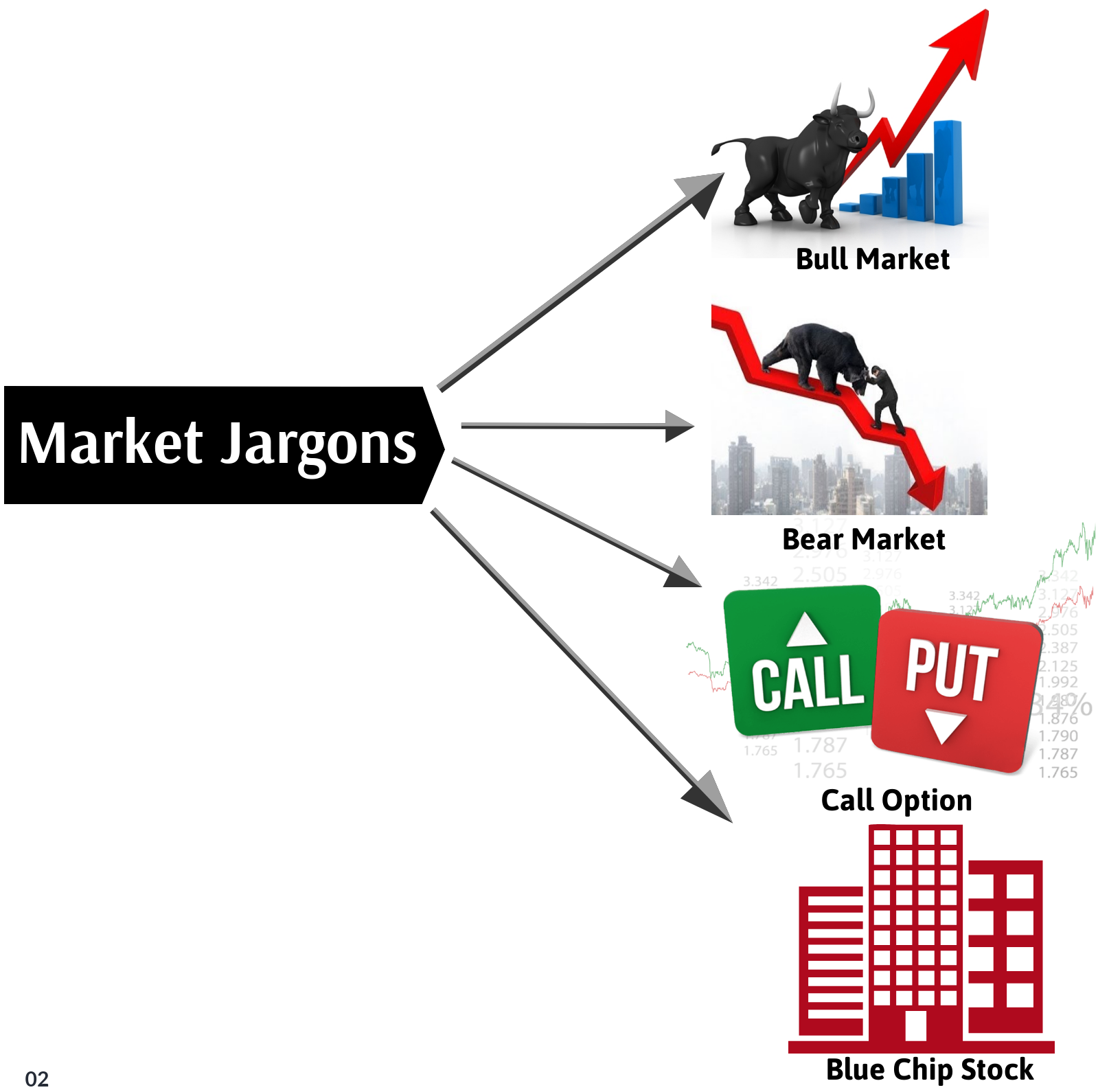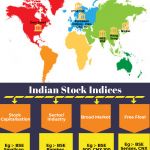Market Jargons to Get Familiar With –
Individuals who have interest or enthusiasm in stock trading generally lack the domain knowledge about the market. Even though trading does not needs lots of money and time, it is important to equip yourself with some fundamental tools and training in order to take the correct decisions. Let us not dive into these technicalities, but here I provide you with the glossary of certain market jargons or terminologies that you need to know before starting your investment.
Bull market –
It is the term used for describing the market scenario. Bull market is actually when the prices of the share are increasing and public is highly optimistic that their share price may continue to go up.
Bear Market –
When the share prices fall down and public is pessimistic of the stock market, it is called a bear market. Public gets fearful that market will fall and thus, selling increases in such market.
Blue Chip Stock –
The stocks of well-established, financially-sound and large companies that hold the record of increasing rate of dividends over years to the stock holders. Generally, blue chip stocks have the market capitalization in crores.
Call Option –
This option gives the investor a right and not obligation of buying a stock at the specified rate within the specified time frame.
IPO: When the privately listed firms offer their shares to the public for the first time to enter in the share market, it is called IPO or initial public offering.
Market Correction –
The market correction happens when there is the pullback in the stock prices, and can be global or regional in nature.
Market capitalization –
This refers the rupee value of a company’s share. It’s calculated by multiplying total number of the shares by the present market share rate. It’s used to define the large cap, small cap or mid cap companies based on the market capitalization.
Market Bottom –
These are the low phase of the market trend that is on a decline. Essentially, market bottom is a point where downturn levels off just after the decline period, and shows a little signs of stabilizing.
Trend Reversal –
It shows changes in direction of the individual investments or market. Sometimes called reversal, the trend reversal identifies the shift in the investment activities, which is anticipated to stay in place for a good period of time.
Valuation –
A type of fundamental analysis, which compares valuation of security and group of securities within its historical context. The valuation analysis will evaluate potential merits of the investment or to assess the business or asset value.
ASBA –
Application supported by blocked amount or ASBA is a process developed by Stock Market Regulator of India SEBI to apply to IPO. In this, IPO applicant’s account will not get debited until the shares are given to them.
That is all. Apart from these, there are many more market jargons involved in trading and investing. But, these are some of the key and important terms used in the share market that the beginner needs to know.







Leave a Reply